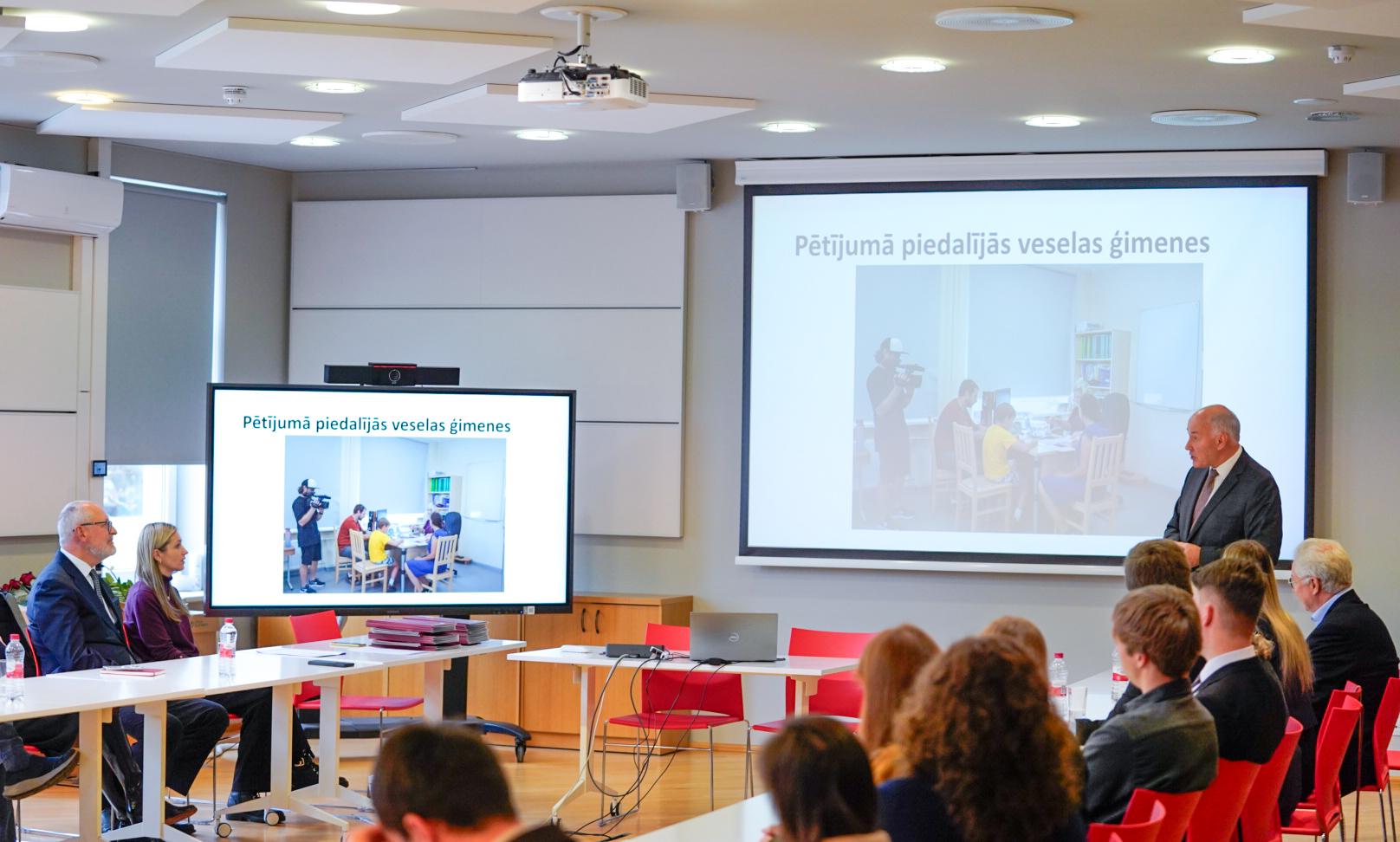Riga Stradiņš University (RSU) has successfully completed the data collection phase of the ambitious project "J. Prīmanis Latvian Population Anthropological Research Project: Piebalga", which involved nearly 700 residents of Piebalga. This expedition is one of the most significant activities in recent years concerning the anthropological study of Latvia’s population and was conducted in collaboration with the Cēsis Municipality and SIA “Roche Latvia.”
The project, which began in early 2024, was initiated with the signing of a cooperation memorandum on February 14 among RSU, the Cēsis Municipality and SIA "Roche Latvia." The memorandum outlines joint efforts in conducting anthropological research on the population of the Piebalga region. During the summer months, a team of RSU researchers and 15 students from the Faculty of Medicine, Dentistry, and Health and Sports Sciences traveled to Piebalga. The anthropological expedition took place in Vecpiebalga (July 22–28) and Jaunpiebalga (August 5–11), with additional measurements taken in Riga on October 24.
During the expedition, 690 participants, aged between 1.5 and 99 years, were involved. A comprehensive program of examinations and survey data collection was conducted, including 3D body scanning, measurements of body weight and blood pressure, lung vital capacity testing, digital photography, and the completion of a questionnaire on health and its relationship to the Piebalga region. For adult participants, there was also an option to donate blood samples to contribute to a biological sample collection for future genetic studies, such as analyzing taste receptor genotypes and dietary habits.
Currently, the collected data is being digitized and undergoing initial analysis, with RSU researchers and students involved in the process. The research teams have identified 16 distinct research directions aimed at evaluating the anthropological, health, and demographic data of the Piebalga population in greater depth. The collected data will be used to create a social profile of the region, analyze the correlation between chronic diseases and body measurements, and investigate the functional state of the musculoskeletal system, cardiovascular and respiratory health, as well as changes in the body throughout life. One of the project initiatives will involve comparing anthropometric data with historical measurements from 1936–1938 to identify changes over time.

Photo: RSU
The results of this study will be a valuable resource for the residents of Piebalga and their descendants, providing new insights into the health and lifestyle of the region’s population. The first report on the project’s findings will be presented on December 14 at the Vecpiebalga Cultural Center, where local residents and other interested parties can learn more about the collected data and its significance.
Building on the success of the Piebalga expedition, RSU plans to expand the anthropological research to other regions of Latvia that were included in similar expeditions in the 1930s. The recently digitized database will be an important resource for RSU researchers and will allow for the analysis of anthropological characteristics in regions like Zemgale, the Vidzeme coastline, and Kurzeme, thereby contributing to the development of a broader anthropological profile of Latvia’s population.
Through this ambitious research, RSU continues to move forward with long-term, innovation-driven research, reaffirming its commitment to strengthening the field of health sciences and expanding involvement in the development of public health prevention.
